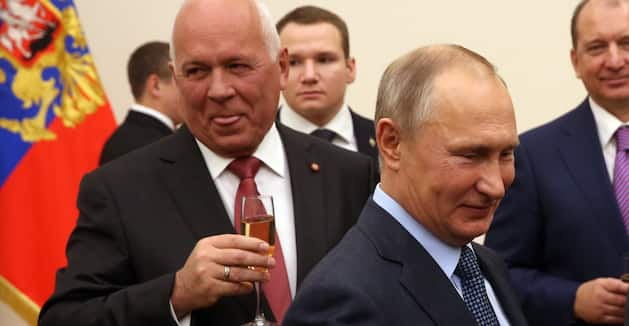No spare parts, no maintenance, no new planes – Western sanctions are hitting the Russian aviation industry hard. But Russia is trying to make a virtue out of necessity and is now turning the tables on its external image without further ado.
“No sanctions without something good,” is currently advertising the Rostec state holding, which also brings together the UAC holding of all Russian aircraft manufacturers under its roof. She argues the sanctions will ensure the domestic aircraft industry receives orders in the quantities it needs. This leads to new technologies, a modernization of production and the promotion of young staff.
Rostec boss Sergey Chemezov also turned the tables last September when he said that Western aircraft would never be delivered to Russia again.
They would have left the Russian market. Airbus and Boeing are brands “that we have already forgotten,” says Chemezov.
Instead, the first step was to use the Irkut MS-21 and the Superjet 100. However, many Western components are also installed in the machines. To this end, “import-substituting elements were quickly developed,” explains the manager.
To meet the need for aircraft, Rostec recalls a well-known but commercially unsuccessful model: the Tupolev Tu-214. She is now one of the flagships of the Russian aviation industry. According to Rostec, it is a “purely domestic aircraft with high-performance characteristics that meets all the requirements of modern air transport”.
The Tu-214 entered the market in 2000 as a modernized version of the Tu-204 with a higher takeoff weight and longer range. A total of just under 30 copies were built, which primarily did not fly with airlines.
Outside of Russia, the model is considered technologically outdated – among other things due to the three-man cockpit and the Russian PS-90A engines, which swallow about 10 percent more fuel than Western engines.
But the Tu-214 also has an advantage now. Because only a minimum of Western components is installed in it. After the sanctions were imposed, Aeroflot ordered 40 aircraft and is expected to receive the first in 2024. Rostec wants to build around 70 units by 2030.
This article was written by Benjamin Recklies
The original for this article “Russians celebrate aviation upswing: “Have already forgotten Airbus and Boeing”” comes from aeroTelegraph.








